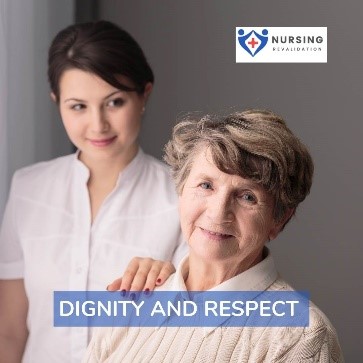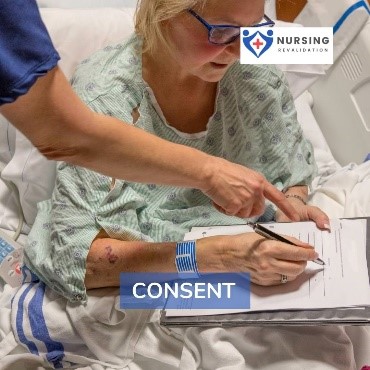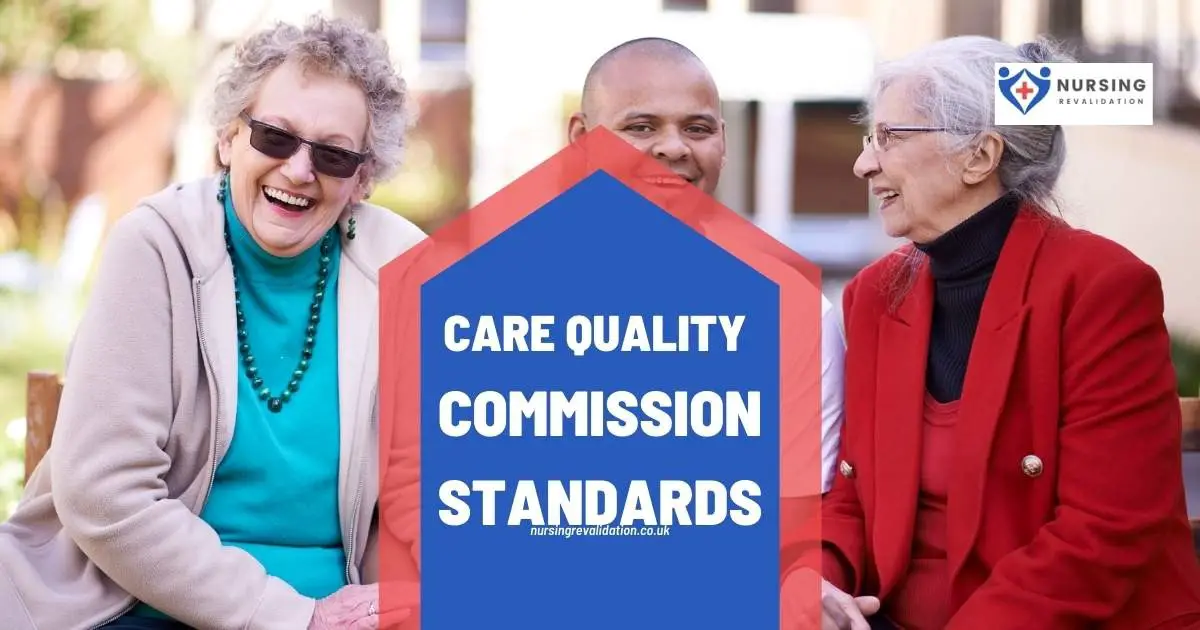Care providing organizations in UK must meet specific care quality commission standards. The care you receive at a hospital, a care home, in your own home from an agency, at the dentist, in a GP practise, and elsewhere must meet certain criteria.
The Care Quality Commission (CQC) is the regulatory body that regulates and inspects all care-giving organisations to verify that requirements are met. CQC registration is required for all NHS and social care providers, and they must adhere to a set of requirements.
CQC standards
There are following Fundamental CQC standards
Person centered care
Individuals must receive care or therapy according to their own needs and preferences. You should talk to them to figure out what they need, make acceptable adjustments where possible, and make sure they understand their selections and preferences completely.
Dignity and respect
While receiving care and treatment, you must be treated with dignity and respect at all times.

This includes ensuring that:
- You have privacy when you require it.
- Everyone is treated on an equal footing.
- You are offered the support you need to help you remain independent and involved in your local community
Consent

When it comes to making decisions about people’s care and treatment, you should give them enough support and make sure they have all the information they need to make an informed choice.
You must seek lawful consent before proceeding with any treatment or service. Individuals’ capacity and competence to consent must be considered, and consent should be properly obtained from someone acting on their behalf if they are unable to grant it themselves.
Safety
At all times, the care and treatment you offer must be safe. This must be accomplished through:
- Assessing the risk of care or treatment to the health and safety of individuals before taking any action.
- To keep people safe, ensure that all personnel are competent and have the necessary credentials, abilities, and experience.
- Keeping your premises and equipment safe and in good working order.
- Keeping enough medicine on hand and ensuring that it is safely maintained, administered, and disposed of.
- Controlling and preventing the spread of infection.
Safeguarding from abuse
Individuals in your care must not be subjected to any type of abuse or mistreatment. To achieve this need, you must take a firm stand against abuse, unjust discrimination, and constraint.
Neglect, undignified treatment, unwarranted or unreasonable constraint, and deprivation of liberty are all examples of this. To prevent any sort of abuse from occurring, you must have extensive policies and processes in place.
Food and drink

People in your care must be properly fed in sufficient quantities to maintain life and good health. To guarantee that people do not suffer from hunger or dehydration, you should implement suitable measures.
Nutritional requirements must be determined from the start, and food – including nutritional supplements and/or parenteral nourishment – must be provided to meet these requirements. Preferences, religious beliefs, and cultural standards should all be considered.
Premises and equipment
Any buildings or equipment used to provide care or treatment must be clean, fit for purpose, well-maintained, and located/stored appropriately.
Complaints
Individuals who receive your care and treatment should understand how to file a complaint. Your system must be simple to use and recognize, handle, and respond to any complaints that are received.
Every complaint should be investigated, and if flaws are discovered, steps should be made to correct them.
Good governance
To maintain a desired level of quality in the service you provide, you must have adequate systems and processes in place. Your systems and processes must enable you to assess, monitor, and enhance present practises effectively.
Staffing
You must hire a sufficient number of qualified, competent, and experienced employees to meet the needs of the individuals in your care.

Staff should be given support, supervision, training, professional development opportunities, and appraisals as needed to enable them to perform their jobs effectively.
Fit and proper staff
To guarantee that only personnel capable of providing care and treatment related to their function and regulatory standards are hired, your recruitment process should be consistent and rigorous.
It’s not enough to have a thorough hiring and screening process. You should keep an eye on your employees to make sure they’re still up to the task, and have a clear mechanism in place for those who aren’t.
Duty of candour
People receiving care and treatment – or anyone acting on their behalf legally – must always be given open and honest information about their care and treatment.
There are several specific requirements you must follow if something goes wrong while giving care or treatment to an individual, including informing them of the incident, helping, providing accurate information, and apologising.
Display of ratings
You must display your service’s CQC rating to offer transparency to the public and people who use it. People will be able to tell whether your service is excellent, good, needs improvement, or inadequate based on your rating.
Your rating must be visible in each of your regulated activity locations, as well as on your website (if you have one).
How do these CQC standards relate to you?
Each and every one of the CQC’s core criteria applies to you if you deliver health or social care in England. Failure to adhere to any rules that might constitute a criminal offence could lead to immediate prosecution.
You could face the following consequences for non-criminal breaches:
- CQC-imposed conditions
- suspension of your registration
- termination of your registration
Any violation of these regulations is a criminal offence that could lead to punishment.
Are you a service provider or want to learn care giving? Nursing revalidation provide interactive care giving training courses. Join the course and raise your care giving effectiveness.

